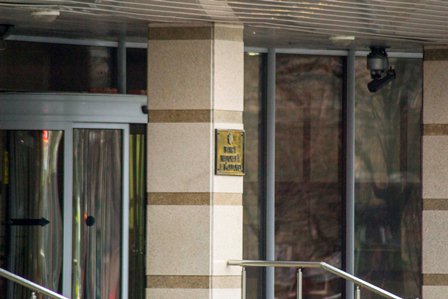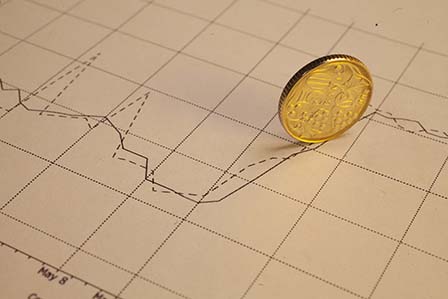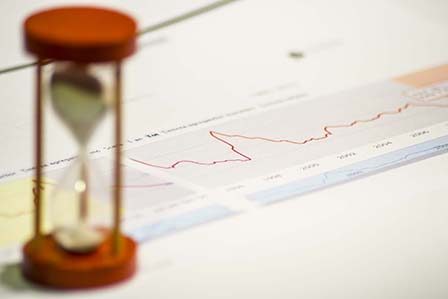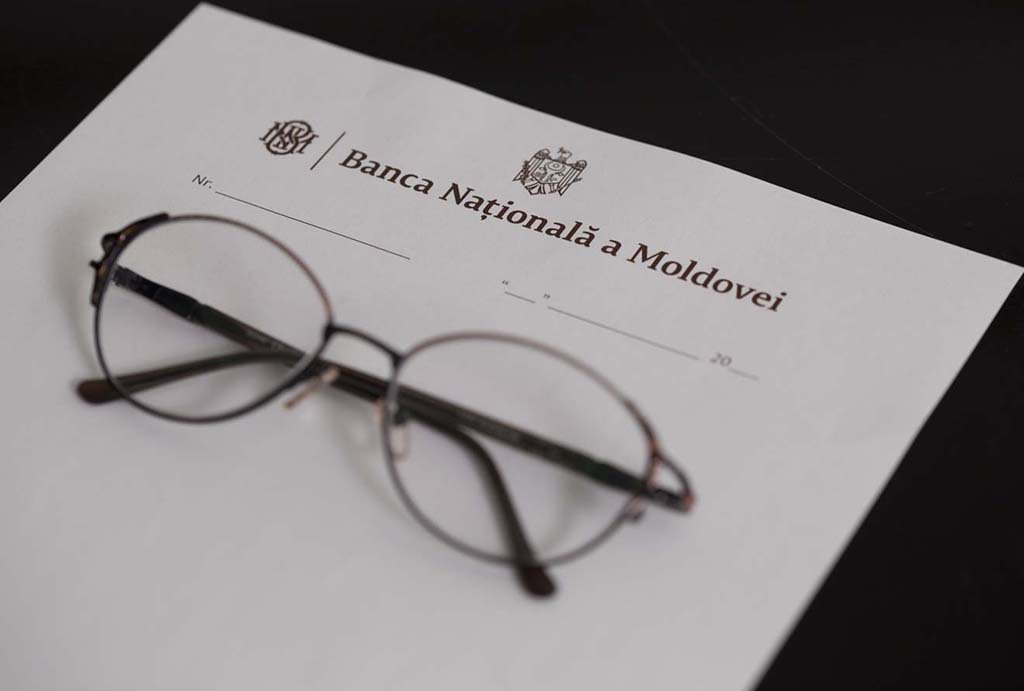This is a translated version. Original version
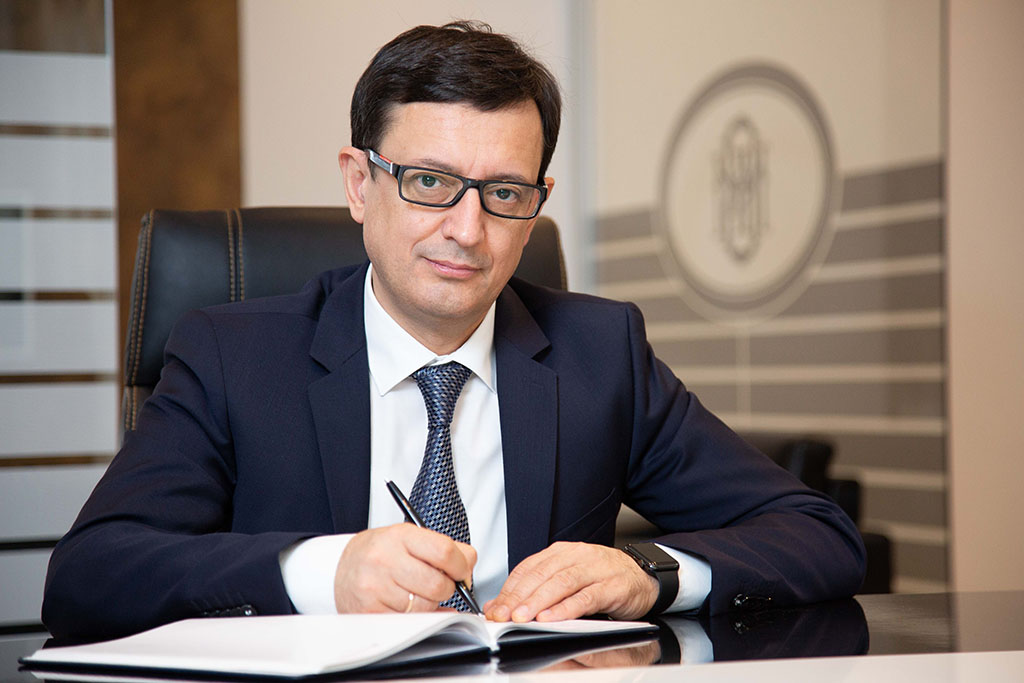
MOLDOVALIVE.MD
What should the market expect from the NBM's monetary policy by the end of 2022?
The National Bank will use all monetary policy instruments and will take all necessary measures to bring inflation to 5% per year over the medium term. In the economic context of the Republic of Moldova, this level creates optimal conditions for economic growth and development, and the citizens’ well-being. It is our main goal and the NBM uses all instruments exactly to reach this 5% level, considering the development of the situation on the market. Subject to subsequent economic developments, we will adjust the monetary policy instruments as well.
Currently, the restrictive monetary policy of the NBM creates conditions that encourage saving over immediate consumption. It is obvious that high inflation is slowing economic growth and eroding citizens' purchasing power. Under a restrictive monetary policy, the Government needs an expansionary fiscal policy with a strong social component to support the most vulnerable.
DESCHIDE.MD
A committee of inquiry has been set up in the Parliament to establish whether the NBM's monetary policy decisions were correct and timely. At the same time, politicians criticise the NBM that instead of communicating about the inflation forecast, it should rather announce what it is doing and provide solutions. What do you say about this?
I reiterate that as Governor of the National Bank I am open to come to the Parliament and explain the monetary policy decisions as often as needed.
The National Bank promotes a monetary policy that is as transparent as possible. That is why we are honest with the society and speak openly about everything the NBM does, including the analyses, forecasts, and tools it applies. The purpose of the NBM's actions is the one stated above - to bring inflation back to the 5% target. Absolutely all inflation-targeting central banks communicate inflation forecasts to the market, and we do the same to anchor medium-term inflation expectations. We announce and explain to the market the monetary policy decisions - we increase the base rates, the required reserves, and we will do this for as long as necessary, considering the economic situation.
Monetary policy instruments will not work if market participants do not trust how they are applied and the NBM's strategy to achieve the goal set by law. That's why we explain to the public the Central Bank's strategy. This also involves an assessment of the current situation. I will note here that our country is currently facing a wave of external inflationary shocks that no central bank can stop through monetary policy. Using monetary policy instruments, we want the economy to absorb these shocks faster and return to balance, i.e., the 5% target.
I will also stress that trust in the Central Bank is an important element of financial stability, of the stability of everything related to the well-being of the country and each citizen. We all live in this economic environment. The financial system works in the interest of the citizens and, as long as there is confidence in this system, people's savings and well-being are safe.
NEWSMAKER.MD
What does Octavian Armașu think about the resounding accusations by Party of Action and Solidarity against the National Bank of starting to increase the base rate with delay?
I will reconfirm that I am ready to return to the Parliament to explain all the NBM’s decisions. It is natural that monetary policy decisions are called into question, that there are different opinions, including that the Government may disagree with monetary policy decisions, especially because the NBM and the Government have different goals and look at things differently. The NBM is looking at the longer term, while the Government has much shorter-term goals, and the fact that there are different opinions is natural. The problem is different – these divergences of opinion are starting to be exploited politically and messages are being sent to the public space, that create discord between institutions - the Central Bank and the Government. I want to state once again that the NBM opts for a close cooperation between the state institutions, the Government and the NBM, and the Parliament and the BNM, respectively. It opts for and carries out this cooperation, which, in fact, is provided for by law. At the same time, we aim to ensure that the NBM is not influenced from the outside when making decisions, while maintaining its independence.
I will mention that our country is in an unprecedented situation - we need to respond to an internationally felt inflationary wave and now it is important that state institutions interact effectively to mitigate the effects of this crisis.
NOI.MD
How can, under the law, the NBM control inflation in the face of a large volume of significantly more expensive imports? What shortcomings on the side of the NBM leadership determine a high inflation in the country? If the President of the Republic of Moldova is right and the NBM cannot control inflation, wouldn't it be time to change the NBM Law and set other, more realistic tasks for the country's main bank? For example, should we organize an efficient system for financing the industry development in the country?
I will remind you that we have external inflationary shocks that do not originate from the NBM’s monetary policy but are caused by certain events outside the Republic of Moldova. They started with the problems created by the pandemic crisis and are now amplified by the war in Ukraine. These inflationary shocks cannot be stopped by monetary policy, but this does not mean that the NBM's main objective of price stability has lost its relevance. The NBM’s mandate is applied to bring inflation back to the target. That is, we need to stop the spread of the effects of this wave of price hikes quickly and prevent rampant increases or, as we professionals call them, the second-round effects, and bring inflation back to the target as soon as possible. Most central banks currently apply their mandate to ensure price stability in this way.
Monetary policy and monetary policy strategies are very complex and involve very complicated tools, econometric modelling, debates within the NBM, and only thereafter a decision is taken. To make certain decisions, you must also have some knowledge and experience in the field. All central banks have the same instruments as the NBM, and the same classical instruments are applied.
ECONOMIC PRESS CLUB
What difficult steps and trade-offs is the NBM ready to take on the IMF recommendations and what new tools to use to respond to the crisis, reduce inflation, maintain financial stability, stabilize the exchange rate, maintain sufficient foreign exchange reserves to deal with current and possible future shocks?
The National Bank has a beneficial cooperation with the IMF. Thanks to this collaboration, we have carried out the banking reform in recent years, which has strengthened the sector since 2014. Now we all see the results - we have a strong, stable banking system that the public trusts and that fulfils its functions.
Regarding monetary policy decisions, we also have the support of the IMF, which has extensive experience in this area. Therefore, I believe that our decisions are very well balanced, calculated, and we analyse many risks when we make decisions.
CAPITAL MARKET
Has the economy adapted to current market conditions? How comfortable are these conditions for economic operators, so that they can develop business, increase the export potential of the country as a result of the tough monetary policy?
The economy is in the process of adjusting and the adjustment will be completed when inflation falls inside the corridor of 5% + -1.5 percentage points. Then we can say that all the internal deviations in the economy have adjusted and the economy is in a new balance. Until then, we are in transition, in the process of adjusting, which, yes, is painful, but it is necessary to avoid persistent inflation, and, respectively, a worse situation in the future.
REALITATEA.MD
The NBM raised the base rate to 18.5% to stimulate savings. However, banks apply an average interest rate of 11% when the inflation rate is 30%. In what currency should people keep their savings?
The NBM raised the base rate to 18.5% for the deposit rate to continue to rise. The same purpose is served by our decisions to increase the required reserves. In this way we want to stimulate savings, to make banks make deposits in lei more attractive by raising rates. We had discussions on this topic with the representatives of banks. The banking sector is currently resilient, and citizens' savings are secure. Statistics show that depositors still prefer to hold deposits in the national currency, which reflects the public's confidence in it.
RADIO CHIȘINĂU
In the context of rising inflation and prices, respectively, you have recently been heard several times in the plenary of Parliament and Committee on Economy, Budget, and Finance. Do you think this would be a signal to resign? Were you suggested or frankly told that you should resign as NBM Governor? How beneficial would your possible resignation be for the financial system?
I have assumed the responsibility of acting as Governor of the Central Bank and I will do my best to fulfil this mandate with professionalism and civic commitment. The law clearly prescribes the conditions under which the Governor may be dismissed. These rules have been established so that in situations such as today, the National Bank, the Executive Board of the NBM, and not just the Governor, have the freedom to make professional decisions, being impartial and protected from political pressures. Thus, the legislator has established protection mechanisms, which will ultimately ensure the financial stability of the country and function for the good of society.
RUPOR.MD
How has lending influenced the NBM's monetary policy which some call drastic and uncompromising? Is there a risk for some of those who used to borrow from banks to switch to microfinance companies?
The monetary policy of the Central Bank can sometimes be drastic and painful, but we must understand that it is necessary to make this imported inflation a temporary phenomenon. We will maintain a restrictive monetary policy for as long as is necessary to bring inflation back to the 5% target. When we see inflationary pressures easing and the trajectory of the economy leading to balance, the NBM will begin to relax the monetary policy. Now we need to pay this price so that later we do not pay a much higher one. We want to avoid the scenario in which inflation becomes persistent and then it will be much more expensive to bring inflation back into the corridor.
As to microfinance companies, there is a difference in business approach between banks and those companies. The two regulators – the NBM and the NCFM - have agreed to implement responsible lending rules, which will align the rules of the game for both sectors. For the banking sector, the new regulation enters into force on 1 July 2022. We will see what decision the NCFM takes, I hope it will not be too late.
BANI.MD
What did you like about the IMF agreement and what would you not have signed? How would you explain the importance of this agreement to ordinary citizens?
I think it is a very good agreement. For the first time, it is one with many objectives, which go far beyond the financial sector. It is a program focused on good governance in state institutions, which I think is very important at this stage. Another thing is implementation. It is important that the authorities implement these objectives. I am glad that despite the difficulties and crises we are going through, all the state authorities have expressed their desire and intention not to postpone the reforms. They have expressed their commitment to continue pursuing the reform agenda and I think that is a very good and plausible thing to do.
INFOMARKET
Is the fact that so far only one bank remains the property of Moldovan shareholders (and it is not one of the systemically important banks) a risk to the financial security of the state? In the event of another global financial crisis, the priorities of foreign shareholders may not change in favour of Moldova ... How likely is it that foreign shareholders will leave the market and what will happen to the Moldovan banking system in such a situation?
We see no risk. As long as the shareholders meet the “appropriate and adequate” criteria, we do not distinguish between local and international shareholders. They all have a place on the market, and it would be important to be competitive and to provide quality services to citizens, to ensure the elements of financial stability. As for a possible departure of investors from the domestic banking sector, we do not believe that investors will abandon banks and investments and leave. Investors in the banking sector of the Republic of Moldova have experience of working during financial crises in several countries, and know how to overcome these crises, and what lines of behaviour to adopt, and we note that this experience now works on our market as well.
PUBLIKA.MD
What measures is the National Bank of Moldova taking to counter transactions on unauthorized sports betting sites operating illegally in Moldova, both through electronic payment systems and bank cards? What amounts have been stopped from being transferred to illegal sites? Have MasterCard and Visa been requested to stop payments from bank cards or not? The data of the analysis made by the NGO Legal Business Monitor show that over half a billion lei reached the grey gambling market in our country in 2020. The situation has improved since March 2021 after the state intervention, but an analysis made by Legal Business Monitor shows that since early 2022, the number of Moldovan gamblers on illegal sites has increased by over 60%.
The NBM considers it important to fight against activities that are unauthorized and prohibited by law and blocking the sites you refer to is the responsibility of other authorities. The NBM draws attention to the fact that the provision of payment services should not be associated with gambling.
I would like to add that after amendments were made to some regulatory acts, without coordination with the NBM, including the regulations on the activity of payment service providers. The National Bank has identified several difficulties in applying these provisions and submitted amendments.
LOGOS.PRESS.MD
To what extent can the national public budget approved for 2022 be called pro-inflationary? How relevant is the danger of repetition of the public finance crisis of 1998, 1999?
The National Bank makes quarterly inflation forecasts, and the information is updated according to the evolution of the situation and available data. Today we live a new reality and, respectively, this cannot be compared with the years 1998-1999. We now have a well-reformed banking sector with transparent and healthy shareholders, a sector that has already been tested - which has proved to be strong in the face of the pandemic and the start of the war in Ukraine.
And the situation in the public sector is totally different from the period then, both in terms of tax collection efficiency and the much better access to finance.
The interview was conducted based on questions from media institutions and news sites in the Republic of Moldova on the 31st anniversary of the NBM (4 June 1991).
The National Bank thanks all the publishers for their participation and remains open to repeat this communication format in the future.






